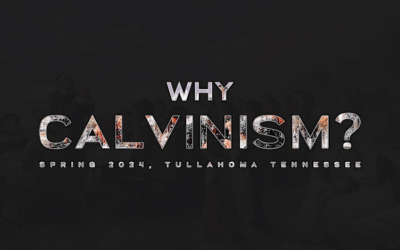A common question that's asked in the Theology Gals facebook group is, “What is Reformed?” When someone asks this question, it is answered with a variety of descriptions. One reason why this happens is that the understanding of what it means has evolved in recent years, and now has a far broader definition than it once did.
Historically, the adjective Reformed has had a specific definition. R Scott Clark explains, “I have argued that there is a stable, historic, definition of the adjective: God’s Word as confessed (theology, piety, and practice) by the Reformed churches. As a matter of history, there was no doubt as to what was meant by the qualifier Reformed from the mid-16th century until about the mid-20th century.” I would agree with Dr. Clark that there is a historic definition and I am in agreement with how he has defined it. There have been various confessions since the time of the reformation which have been considered Reformed; today the most commonly used are the Westminster Standards and The Three Forms of Unity.
I haven't forgotten about the Reformed Baptists. With some research you'll find that Reformed Baptist is a fairly new label, and it too has evolved in recent years and is now used more broadly. Before Reformed Baptist was used, confessional calvinistic Baptists used to be known as Particular Baptists. Even when the term was initially more widely used, it had a similar definition to Reformed, but specifically referring to those who held to certain Baptist confessions. In recent years, many began to use it as synonymous with calvinistic Baptist, including the non-confessional ones.
In this episode of Theology Gals, my co-host Ashley explains that even she wore the label Reformed before she really knew what it meant. Now she holds to the Reformed confessions, but she claimed the label before she really understood what those were. Because it's now so broadly used, it's caused confusion. In this video from Pastor Zach of Westside Reformed Church, he explains the confusion this has caused. He uses a couple of examples to make the point, for instance, can a person who believes in baptism call himself a Baptist even though he believes in baptizing the babies of believers? Can't one just use Baptist the way they want to use it? I'm sure a Baptist would say, “That's not how it has historically been understood.” If I started calling myself a Baptist, that would cause confusion. Pastor Zach continues to explain that it would also cause confusion if someone like me, a Presbyterian, started calling myself a Lutheran just because I believe in justification by faith alone. I'm sure my Lutheran brothers would take issue with that, as I don't hold to their confessions and even disagree with them on several points.
Some people have argued, “Why can't we just label ourselves Christians? Why do we need all these other labels?” Labels can be helpful. With various theological camps, Reformed distinguishes us from other theological systems. If I move somewhere and am looking for a new church, I'm going to want to attend one with like-minded believers who hold to the same confessions, and the same ecclesiology. I'm going to want to look for a Reformed or Presbyterian Church. And if a church describes itself as Reformed, I will have some expectations of what being a Reformed church means.
I've put together several resources to go along with our podcast on what it means to be Reformed. We discuss the historical understanding, but also how it's used more broadly by many today, and why that's happened.
R Scott Clark on the Necessity Of An Objective Definition Of Reformed. Here he describes some of the history of the adjective.
A Wonderful Illustration Of The Necessity Of An Objective Definition Of Reformed by R Scott Clark
In this short video which is part one on a series on the history of the United Reformed Church, Pastor Zach from Westside Reformed Church discusses what it means to be Reformed,




0 Comments